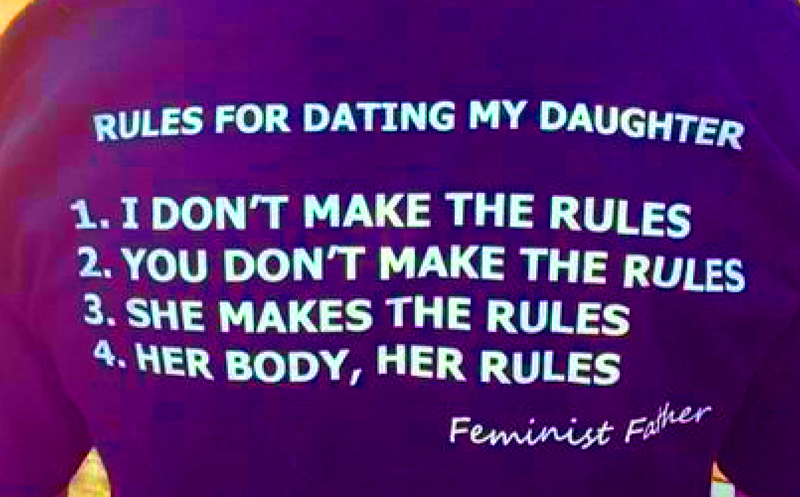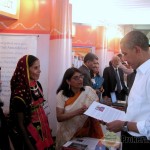“Fathers, be good to your daughters. Daughters will love like you do.” – John Mayer – Daughters


As a girl who grew up with two fantastic fathers (one “biological father” and one “stepfather”), I know like no other, how important father figures can be in a person’s life. In my case, thankfully, both my fathers were involved with my upbringing, even though there were significant differences in their approaches to their fatherly care. Surely a comparison between their roles in my life could never do either of them justice. Regardless, it is clear as day to me, that their differential involvement with my upbringing affected their respective wellbeing and happiness more than generally acknowledged. Fathers want to care for, and spend time with their children. Just as children want be cared for, not only by their mothers, but also by their fathers.
The reality is however that society has long undervalued the importance of fathers in parental care. In other words, the equation of womanhood with motherhood does not only limit women’s options in lives, but that of men too. One problem is that many feminists have in their struggle trivialized men’s issues. And let’s be honest. Women have experienced patriarchy in many, many, many ways in which men have not – which deserves to be addressed. Yet at the same time, ideals of masculinity resulting from patriarchy have also put a burden on men. Men are expected to be able to provide, to be emotionally strong at all times, to not have certain interests (fashion, cooking, dancing) and importantly: to not “care” so much for the involvement with their children. This urgently needs to change.
Luckily, slowly things are started to be done to redefine masculinity and fatherhood. One fantastic initiative is for example that of MenCare, a global campaign to promote men and boys’ involvement as equitable, non-violent caregivers. Together with organizations such as Promundo and Sonke Gender Justice, Rutgers, Save the Children and the MenEngage Alliance, they have issued the first “State of the World’s Fathers Report”. Interestingly, it brings together findings of research done across the globe, along with program and policy examples related to men’s participation in caregiving. It covers topics such as sexual and reproductive health and rights, maternal health care, child care and child development, violence and violence prevention.
Here are some of the major findings resulting from the report:
- Approximately 80 percent of men will become biological fathers at some point in their lives, and virtually all men have some connection to children – as relatives, as teachers, as coaches, or simply as community members.
- Involved fatherhood helps children thrive.
- Involved fatherhood allows women and girls to achieve their full potential – now and in future generations
- Involved fatherhood makes men happier and healthier.
- Men’s involvement in caregiving is increasing in some parts of the world, but nowhere does it equal that of women.
- Fathers all over the world want to spend more time with their children.
- Men’s participation and support are urgently needed to ensure that all children are wanted children.
- Engaging men – in ways that women want – early on in pre-natal visits, in childbirth, and immediately after the birth of a child, can bring lasting benefits.
- Promoting fathers’ involvement must include efforts to interrupt the cycle of violence.
- Children, women, and men benefit when fathers take parental leave.
- Men’s greater involvement in care work also brings economic benefits
The report importantly also suggests a set of recommendations for stimulating a greater involvement of fathers in the caretaking of children. These include:
- Create national and international action plans to promote involved, non-violent fatherhood and men’s and boys’ equal sharing of unpaid care work.
- Take these action plans and policies into public systems and institutions to enable and promote men’s equal participation in parenting and caregiving.
- Institute and implement equal, paid, and non-transferrable parental leave policies in both public and private sectors, as well as other policies that allow women’s equal participation in the labor force and men’s equal participation in unpaid care work.
- Gather and analyze data on men’s involvement as fathers and caregivers and generate new evidence from programs and policies
- Achieve a radical transformation in the distribution of care work through programs with men and boys, as well as with women and girls, that challenges social norms and promote their positive involvement in the lives of children.
- Recognize the diversity of men’s caregiving and support it in all of its forms
These insights and recommendations provide for a useful starting point to start our journey together with our fathers within the feminist movement. At CSR, we look forward to taking some of the recommendations forward as the involvement of men and boys has always been a priority to us. For now, we commend all the care providing fathers out there and wish them a happy Father’s day coming Sunday.
Download the full report of MenCare
Looking forward to reading your blogs, you can mail us your entries at WriteWithUs@csrindia.org, or upload them at Write With Us.
Donation for Centre for Social Research to Join our effort in rehabilitating Domestic Violence
Discuss this article on Facebook




